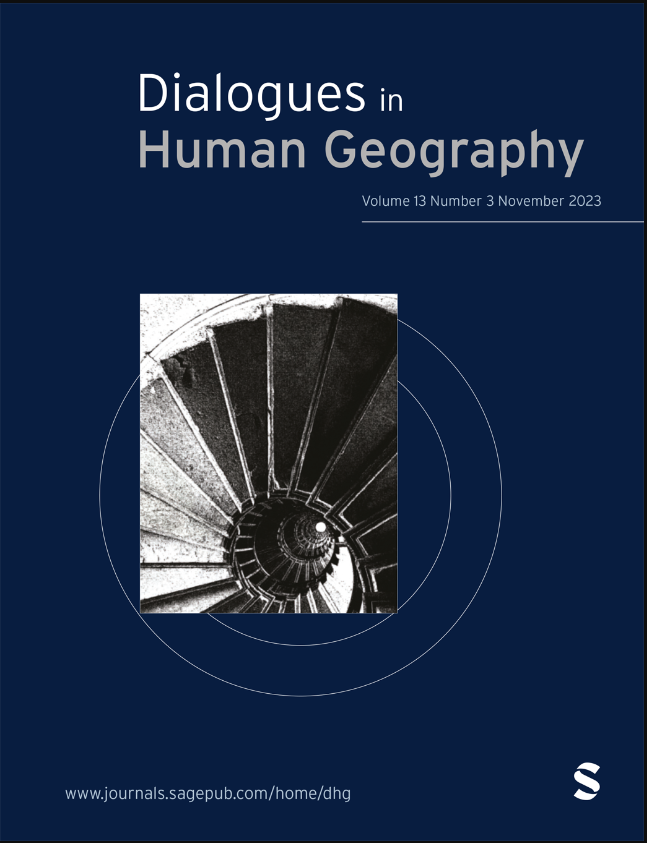扩展手势与全球城市建设:多尺度的扩展城市化分析
IF 9.6
1区 社会学
Q1 GEOGRAPHY
引用次数: 0
摘要
Simone et al.(2023)《居住在扩展区》中提出的扩展城市化分析的优势在于其将对微观姿态和个人决策的关注与全球资本流动、地缘政治和气候变化的结构性分析结合在一起的迷人能力。在世界各地九个地点进行民族志潜水的集体工作,并将这些反思汇集在一起,通过空间和时间的扩展,对城市建设过程产生了丰富而复杂的理解。本文章由计算机程序翻译,如有差异,请以英文原文为准。
Extending gestures and global city-making: Analyzing extending urbanization at multiple scales
The strength of the analysis of extended urbanization proposed in Simone et al.'s (2023) ‘Inhabiting the Extensions’ resides in its fascinating ability to bring together a focus on micro gestures and individual decisions with a structural analysis of global capital flows, geopolitics, and climate change. The collective work of ethnographically diving in nine locations across the world, and bringing together these reflections, generated a rich and complex understanding of city-making processes through spatial and temporal extensions.
求助全文
通过发布文献求助,成功后即可免费获取论文全文。
去求助
来源期刊

Dialogues in Human Geography
GEOGRAPHY-
CiteScore
8.00
自引率
4.00%
发文量
86
期刊介绍:
Dialogues in Human Geography aims to foster open and critical debate on the philosophical, methodological, and pedagogical underpinnings of geographic thought and practice. The journal publishes articles, accompanied by responses, that critique current thinking and practice while charting future directions for geographic thought, empirical research, and pedagogy. Dialogues is theoretically oriented, forward-looking, and seeks to publish original and innovative work that expands the boundaries of geographical theory, practice, and pedagogy through a unique format of open peer commentary. This format encourages engaged dialogue. The journal's scope encompasses the broader agenda of human geography within the context of social sciences, humanities, and environmental sciences, as well as specific ideas, debates, and practices within disciplinary subfields. It is relevant and useful to those interested in all aspects of the discipline.
 求助内容:
求助内容: 应助结果提醒方式:
应助结果提醒方式:


